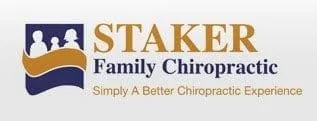Blogs
This blog post can not be found
Locations
Hours of Operation
Monday
8:15am - 12:30pm
3:00pm - 6:00pm
Tuesday
3:00pm - 6:00pm
Wednesday
8:15am - 12:30pm
3:00pm - 6:00pm
Thursday
8:15am - 12:30pm
3:00pm - 6:00pm
Friday
8:00am - 11:00am
Saturday
8:00am - 11:00am
Sunday
Closed
Monday
8:15am - 12:30pm
3:00pm - 6:00pm
Tuesday
3:00pm - 6:00pm
Wednesday
8:15am - 12:30pm
3:00pm - 6:00pm
Thursday
8:15am - 12:30pm
3:00pm - 6:00pm
Friday
8:00am - 11:00am
Saturday
8:00am - 11:00am
Sunday
Closed
Staker Chiropractic Life Center
501 Lark St. Geneva, IL 60134
Phone: 630-232-6616

